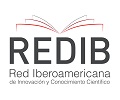Post–communist Cuba... a Theme Park? Utopian and Counter–Utopian Imaginaries in Literary Havana
DOI:
https://doi.org/10.14409/culturas.v0i13.8602Keywords:
utopian imaginaries, cuban literature, Alejo Carpentier, Pedro Juan Gutiérrez, Antonio José PonteAbstract
The economic crisis and the progressive collapse of the Che Guevara’s «New Man» generated during the ’90, in Cuba, the emergence of a new narrative trend (named «postcommunist», «postsoviet» or «postrevolutionary» and with representatives like Antonio José Ponte and Pedro Juan Gutiérrez), where the logic of the artistic exchange left the guardianship of the revolutionary government to establish itself in a commercial logic. This logic is characterized by the conception of the body itself as merchandise or value of change, by the exacerbated exhibitionism of the narrative voices and by the consequent account of the reader as a voyeur. Opposite to Alejo Carpentier’s Utopia, the literary images of Center Havana and Old Havana in ruins, the figures of Castro and Guevara decorating objects of massive consumption, and the exotic sexual offer of the island, affirm a post Utopian imaginary exploited
by tourism, as if Cuba were a theme park, a natural reserve or an open sky museum. It is worth asking then how the textual Havana, the Havana made of words (a reinvention of the geographical city that is outside the texts), is a generator of a social imaginary where the dominant utopia of the twentieth century is irreversibly permeated by the consumer society.






